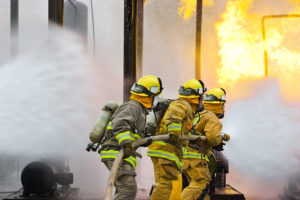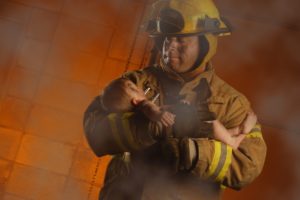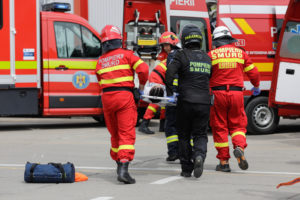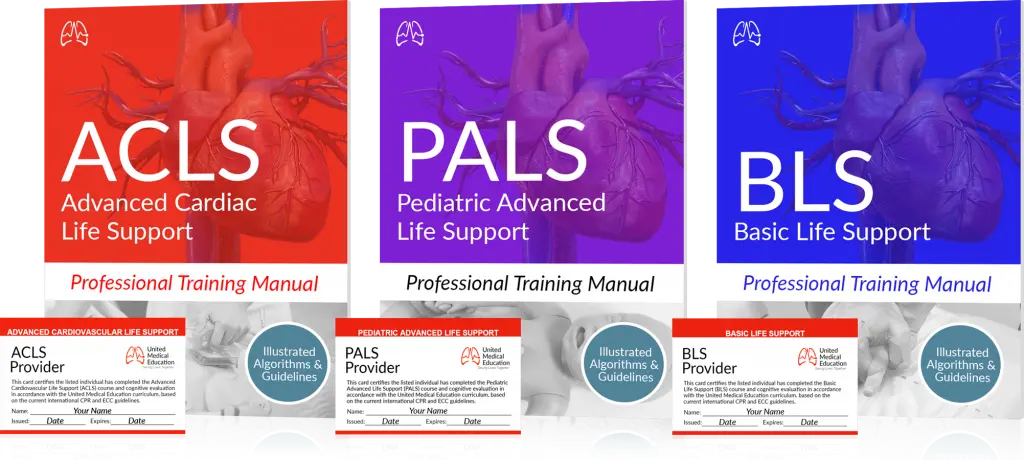When we think of firefighters, images of brave individuals fearlessly battling roaring flames often spring to mind. However, their roles extend beyond fire-fighting. Nowadays, firefighters are an essential part of the emergency medical system, often being the first responders to a medical emergency. Their duties now encompass a wide range of medical practices, from basic first aid to advanced life support. One area, in particular, has emerged as critical in this scope: Pediatric Advanced Life Support (PALS) certification.
Available through leading training providers like United Medical Education, the PALS course is not merely a certification. It forms the core of an effective and timely response to pediatric emergencies, empowering our courageous firefighters with the right set of skills and knowledge.
Delving into PALS: What does it entail?
What makes PALS stand out is its thorough and rigorous training program, which is designed to be accessible to everyone – from experienced paramedics and dedicated nurses to brave firefighters. PALS training immerses participants in an environment focused on advanced life support techniques tailored to cater to the youngest patients. So, what’s behind the training?
PALS courses, available to those who create an account with United Medical Education, focus on essential areas such as airway management, effective resuscitation strategies, and nurturing high-performance team dynamics. The training sessions are interactive, transforming learners into confident practitioners capable of managing a wide range of pediatric emergencies.
PALS training climaxes with a simulation examination, where students experience the high-pressure environment of a pediatric emergency and put their newly honed skills into practice. This hands-on approach is what sets PALS apart – learning the theory is one thing, but applying it under high-stress conditions is where the true value of this training shines.
The Increasing Need for PALS-Certified Firefighters
Current trends indicate the rising incidence of pediatric emergencies. The National Emergency Medical Services Information System (NEMSIS) reports that pediatric cases make up a significant chunk of all EMS calls. This trend points to the likelihood that firefighters will increasingly encounter pediatric emergencies.
The solution lies in expanding the pool of PALS-certified firefighters. In the uncompromising world of emergency medical response, every second counts. Firefighters who are trained in PALS can begin life-saving procedures before the arrival of an ambulance, narrowing the gap between the onset of a crisis and the arrival of advanced life support.
Elevating Quality of Care: The Transition from General First Aid to PALS
While general first aid training prepares individuals with basic life-saving skills, the transition to Pediatric Advanced Life Support (PALS) certification takes the level of care to new heights, specifically focusing on the unique challenges associated with managing pediatric patients.
PALS training goes beyond the fundamentals of first aid. It equips healthcare professionals and first responders with the knowledge and skills necessary to address critical situations involving infants and children. By understanding the unique physiological and anatomical differences of young patients, PALS-certified individuals can provide more effective and targeted care, thereby increasing the chances of positive outcomes.
The significance of PALS certification becomes evident when we examine real-life incidents where it has made a profound impact. In a remarkable example from Nebraska, a firefighter came to the rescue of a two-month-old baby who was experiencing cardiac arrest. Thanks to the specialized knowledge gained through PALS training, the firefighter successfully resuscitated the infant and saved a precious life. This heartwarming incident serves as a powerful testament to the transformative effect of PALS training in real-world emergency situations.
PALS training not only improves the technical skills of healthcare professionals and first responders, but it also cultivates a deeper understanding of the emotional and psychological aspects of treating children in emergency situations. It emphasizes the importance of communication, compassion, and empathy when interacting with both the pediatric patient and their parents or guardians, recognizing that a calm and reassuring presence can greatly impact the overall experience and outcomes.
In an era where the quality of healthcare is constantly evolving, PALS certification stands out as a critical step towards elevating the standard of care for pediatric patients. By expanding the knowledge and skills of healthcare professionals and first responders, it ensures that emergency situations involving infants and children are met with the expertise and precision they deserve.
Building Community Trust: Enhancing Public Confidence through PALS Certification
The relationship between a community and its firefighters is built on trust. PALS certification can bolster this bond by assuring the public that firefighters are well-equipped to provide excellent care to all community members, regardless of age.
The profound impact of PALS certification becomes more evident when we hear personal stories from individuals within our own community. One such story involves my neighbor, Anna who contacted me to express her interest in the online PALS training after an alarming incident that happened one sunny afternoon during a family picnic on a Florida beach. She recalled, “We were all having fun at the picnic, and the kids were happily snacking when suddenly, my two-year old daughter, began choking. My heart felt like it was sinking. I didn’t know what to do. Just when I was about to break down in despair, an off-duty firefighter, also enjoying the beach with his family, appeared on the scene. He quickly and effectively cleared my little girl’s airway. His calm disposition while handling the crisis was awe-inspiring. When he told me about his PALS training, I truly appreciated the value of the certification – it saved my daughter’s life.”
Anna’s account shows the importance of investing in PALS training and developing a community where members can contribute to the well-being and safety of one another.
Enhancing Interdisciplinary Communication with PALS Certification
During a pediatric emergency, survival often depends on the smooth collaboration between firefighters, paramedics, and hospital staff. PALS training adds to this multidisciplinary collaboration by fostering effective communication and teamwork.
PALS certification encourages a unified language across different disciplines, minimizing misunderstandings and ensuring a smooth transition from one team to another. It also underscores the importance of clear and concise communication, facilitating an environment conducive to cooperation and coordinated response.
Envisioning the Future of Firefighting with PALS
The trend is unmistakable: PALS certification is becoming a highly recognized and valued credential in firefighting. Fire departments that are committed to staying ahead of the curve are already incorporating it into their training protocols.
United Medical Education stands at the vanguard of this shift, offering accessible PALS training to individuals who create a student account. This includes not just access to course materials, but also free practice exams to ensure students are well-prepared for the final test.
As we look towards the future, it’s clear that PALS certification will play an increasingly important role in firefighting. It’s a partnership that promises to elevate emergency response, improve patient outcomes, and foster greater trust within our communities. Here’s to a future where firefighting is PALS-certified and stronger than ever.








